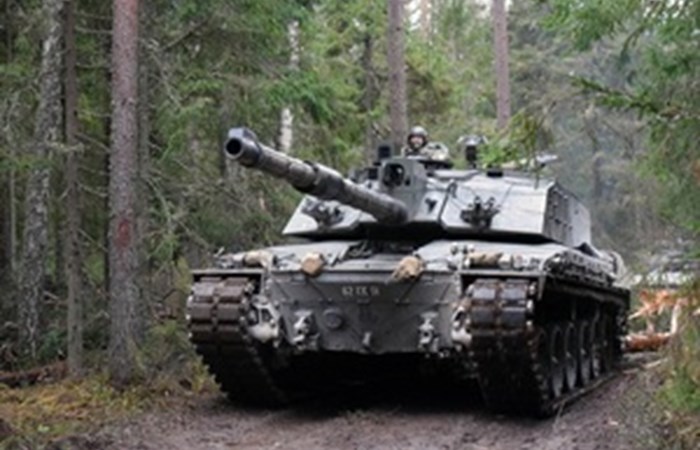Ministry Of Defence

Defence Secretary Ben Wallace called on his counterparts at Ramstein Air Base today to accelerate the delivery of military aid packages in a demonstration of continuing unity in the international support for Ukraine.
Ministers and representatives from 50 nations attended the 11th meeting of the Ukraine Defence Contact Group at the US Air Force base at Ramstein, Germany.
The acceleration of military support was the focus of the meeting, with Ministers progressing deliveries to bolster Ukraines capabilities as they plan to expel Russian Forces from illegally occupied territory. Since its first meeting in April 2022, the Ukraine Defence Contact Group has grown to involve more than ten other nations.
The completion of delivery of the most recent package of military aid was confirmed, including:
- A squadron of Challenger 2 tanks, along with their ammunition, spares, and armoured recovery vehicles;
- 32 AS90 self-propelled guns, sufficient to support two brigades with close support artillery;
- More than 150 armoured and protected vehicles;
- And hundreds more of the most urgently needed missiles, including for air defence.
As the Prime Minister has previously announced, firm plans are now in place to sustain and support this equipment, including with ammunition, with the UK set to provide more than 300,000 artillery shells to Ukraine throughout 2023, equivalent to more than 1,000 shells per day.
The UK is committed to standing with Ukraine for as long as it takes and has committed so spend another 2.3bn on military support for Ukraine this year. By making this commitment we will strengthen Ukraines position in negotiations, guard its long-term sovereignty and enable Ukraine to deter by denial.
The higher quality of training for Ukrainian soldiers has also proven battle-winning against Russian Forces and the Defence Secretary updated the meeting on the training provided by UK Armed Forces and their counterparts from nine other nations.
A total of 14,000 Ukrainian recruits have now returned from the UK to defend their homes, trained and equipped for operations including trench clearance, battlefield first aid, Law of Armed Conflict awareness, patrol tactics, and rural environment training.
The UK has committed to continue and develop the training provided according to Ukraines requirements, including the extension to pilots, sailors and marines, and is now expected to reach 20,000 trained recruits by the end of this year.
The second procurement round for the UK-led International Fund for Ukrainewas announced, having been established last summer to encourage donations from around the world and stimulate industrial supply of cutting-edge technologies for Ukraines most vital battlefield requirements.
The funds first round raised 520m of donations and received 1,500 expressions of interest from suppliers in 40 countries around the world. The second procurement round is now open and the UK is calling for further national donations and industry to provide their most innovative technologies, especially for air defence.
Defence Secretary Ben Wallace said:
The message from Ramstein is clear. International support for Ukraine is growing. More countries than ever are attending. Donations are increasing and their delivery is accelerating. We will stand with Ukraine for as long as it takes.
The UK can be proud of our support. We are providing countless brave Ukrainians with the battle-winning training, equipment and ammunition urgently needed to repel Russias barbaric invasion.
The UK is committed to standing with Ukraine for as long as it takes to defend themselves against Russias illegal and unprovoked invasion. We are one of the leading providers of military support for the Armed Forces of Ukraine and were the first country to donate modern main battle tanks, as well as training Ukrainian tank crews in the UK and delivering them within 11 weeks of announcement.
To date, the UK has supplied more than 10,000 anti-tank missiles, 200,000 rounds of artillery ammunition, hundreds of anti-aircraft guns, self-propelled artillery, and more than 200,000 pieces of non-lethal equipment, including extreme cold weather clothing, mine detection equipment, and indust
